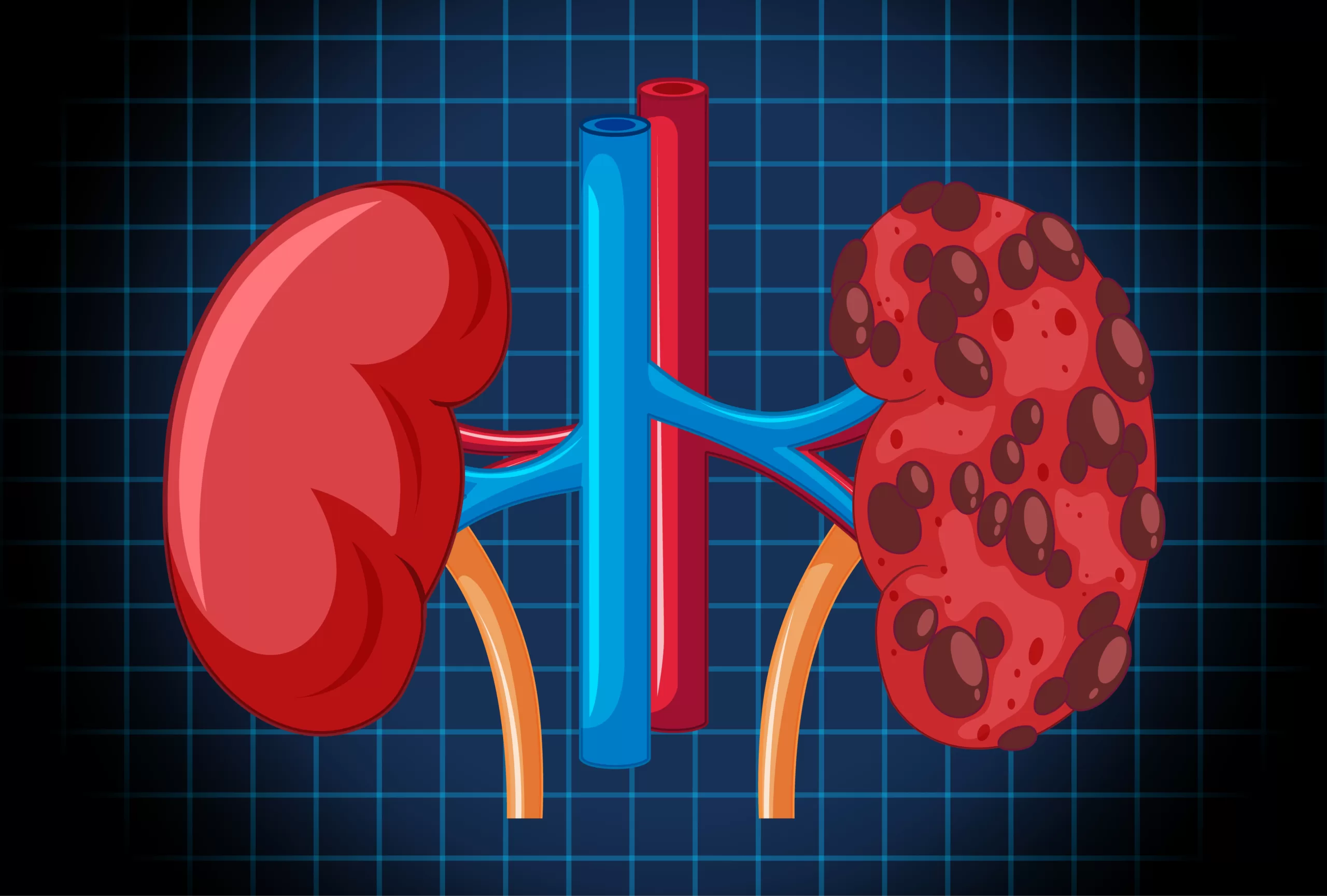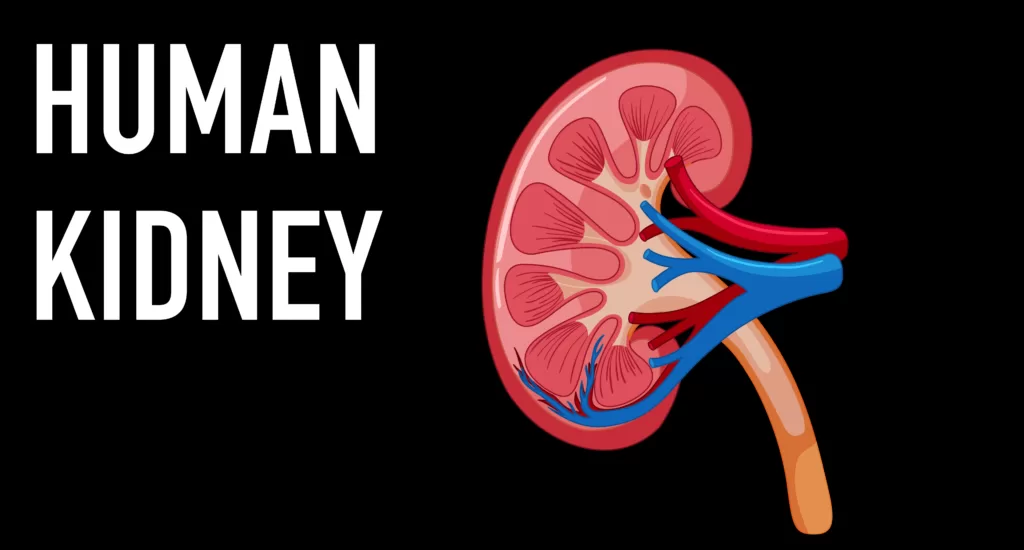Renal failure from diabetes: Causes, Symptoms & Treatment

People living with type 1 and type 2 diabetes are at risk of developing diabetic nephropathy, which is also known as a renal failure from diabetes. This serious complication affects an estimated one-third of these individuals in the United States.
Diabetes can cause renal failure due to nephropathy, so individuals with this condition must be very mindful of their lifestyle. A healthy diet and exercise routine along with effective diabetes and high blood pressure management are crucial for delaying or preventing such damage.
Years of untreated disease can lead to damage to your kidneys’ filtering system. Getting early treatment is essential to stop or slow down the development and decrease the probability of additional troubles arising.
Kidney disease if left untreated, can lead to end-stage renal failure from diabetes. This is an urgent medical situation that must be addressed as soon as possible. Dialysis or a kidney transplant are the two main treatment options available at this stage.
Table of contents
Renal failure from diabetes: Causes
Diabetes can cause damage to the cells & vessels of your kidneys, resulting in a condition known as diabetic nephropathy. This is a common issue for both type 1 and type 2 diabetes patients.
If diabetes is left unchecked, it can have serious repercussions on your kidneys. The blood vessels that filter waste from your blood may become damaged and cause kidney damage as well as elevated blood pressure levels.
Having high blood pressure can be very harmful to your kidneys, as it can place additional strain on the delicate filtration system. This can eventually cause further kidney damage.
Symptoms of renal failure from diabetes
Initially, diabetic nephropathy will proceed without any obvious signs and symptoms. However, as it advances, the following changes become more likely to occur:
- Blood pressure control is deteriorating, with an increasing number of people struggling to maintain healthy levels.
- Puffiness of the feet, ankles, hands, or eyes is common and may be a sign of an underlying health condition.
- People with diabetes may notice they have to go to the bathroom more often due to protein in the urine. Additionally, some may find that their need for insulin or other diabetes medicine decreases as a result.
- Loss of appetite, Nausea, and vomiting
- Itchy sensations that won’t go away, difficulty focusing your thoughts, feeling short of breath, and having excessive tiredness – these all may be signs of an underlying medical issue. It is important to speak with a healthcare professional to determine the root cause of your symptoms.
Diagnosis
Checking for renal failure caused by diabetes should become part of your type 1 diabetes management plan. It’s best to start screening five years after you’re diagnosed with the condition. Regular testing can help catch and diagnose diabetic nephropathy as soon as possible. Upon being diagnosed with type 2 diabetes, screening should begin immediately. This is to ensure that you can manage it properly and control its symptoms.
screening tests

- The urinary albumin test is essential in identifying the presence of a protein called albumin in the urine. Normally, the kidneys don’t let this protein pass through. Detecting high amounts of albumin in urine points out to abnormal functioning of the kidneys.
- The albumin/creatinine ratio helps to assess kidney function by measuring the amount of albumin in urine relative to creatinine. Creatinine is a chemical waste product that healthy kidneys should remove from our bloodstream. The level of this ratio can give a good indication of how well our kidneys are working.
- GFR is a crucial indicator of how efficiently the kidneys are filtering blood. By measuring creatinine levels in a patient’s blood sample, doctors can estimate GFR. A lower-than-usual GFR points towards poorer kidney functioning.
To diagnose a medical condition, other tests that may be done include:
- Imaging tests such as X-rays, ultrasound, CT scans, and MRIs can be used to look at the structure & size of your kidneys and the level of blood flow. Depending on the situation, other imaging tests may also be used.
- A kidney biopsy is by your doctors recommendation, which uses a thin needle to take a sample of tissue from the organ. It is usually after you receive numbing medication (local anesthetic) to make the process less uncomfortable. These pieces of tissue are then under a microscope to get better insight into any issues related to the condition.
Renal failure from diabetes: Treatment
Taking charge of diabetes & hypertension is the key to managing diabetic nephropathy or renel failure from diabetes. Eating a nutritious diet, exercising regularly & following your prescribed medication regimen are all essential components of this treatment. Proactively monitoring and managing your blood sugar and cholesterol levels is a safe way to avoid renal issues & their costly treatments. It may also lower the chances of any other associated medical complications in the future.
Medications
At the beginning of renal failure from diabetes, your treatment plan could involve taking medications to target the following:
- Medication such as ACE inhibitors and ARBs are preferable for people with high blood pressure. These can help to lower and maintain a healthy level of blood pressure.
- Maintaining healthy blood glucose levels is essential for those with diabetic nephropathy. Certain medications can assist in attaining this goal and regulating the blood sugar level.
- Statin medications are widely in use to address elevated cholesterol and protein levels in the urine. These drugs can reduce cholesterol to healthier levels for better overall health.
- Kidney scarring is a common concern for those with diabetic nephropathy, but new treatment options like Finerenone (Kerendia) are helping to reduce inflammation and tissue damage. This drug works by inhibiting the molecular activity associated with kidney scarring.
Prevention
You can minimize your chances of having diabetic nephropathy or renal failure from diabetes by taking the necessary precautions. Regular exercise and eating a balanced, healthy diet may help protect you from diabetes-related conditions.

- To take proper diabetes care, our advise is to make regular trips to the clinic. At least once a year you should meet your healthcare team and discuss the progress made to manage diabetes and renal failure from diabetes.
- Controlling high blood pressure and other health issues is a must if you want to reduce your risk of getting kidney disease. Your doctor can help you in this regard, so it’s best to work with them closely to manage your medical conditions well.
- When taking over-the-counter medications, always make sure to carefully read and adhere to the instructions provided. This includes nonprescription pain-relieving medicines like aspirin, as well as naproxen (Aleve) and ibuprofen (Advil, Motrin IB, etc). People with diabetic nephropathy should be careful when taking certain types of pain relievers, as they could potentially damage their kidneys.
- To stay in optimal health, you must maintain a healthy weight. If you’re at a good weight, exercising regularly and staying active should help keep your number where it is. For those who may need to shed a few pounds, consulting your doctor and discussing weight-loss strategies like increasing activity levels and reducing calorie intake can be beneficial.
- Smoking is a bad habit that can wreak havoc on your kidneys. If you are a smoker, it’s important to find strategies to help you quit, such as support groups, counseling, and medication. Speak to your doctor about what might work best for you and take the necessary steps toward giving up this unhealthy habit.
Takeaway
To effectively manage diabetes and high blood pressure, a healthy diet, exercise, and self-care are crucial. During regular check-ups for diabetes care, We can usually identify renal failure from diabetes is usually. After the diagnosis with diabetic nephropathy, your treatment plan should focus on how to manage diabetes properly and regular tests to keep an eye on any potential changes in kidney function.
Products That We Suggest for you
GLUCONITE – BLOOD SUGAR & SLEEP SUPPORT
Gluconite is the only solution on the planet that helps you sleep deeply while maintaining a healthy blood sugar level. According to scientific studies, your nighttime metabolism and sleep quality are crucial to your overall health.
To know more and purchase, Click Here
GlucoTrust – Blood Sugar Support
Through the utilization of wonderful nutrients, GlucoTrust promotes healthy blood sugar (glucose) levels. This mixture may also help you sleep better and longer, as well as lower hunger cravings, making it simpler to lose weight without having to keep to a bland diet.
To know more and purchase, Click Here








Comment to this Article
Comments that encourage respectful conversation are welcomed at AGP Health n Beauty. Stay on subject, please. Comments that are aggressively promotional of goods or services or that include personal attacks, vulgar language, or other forms of abuse will be deleted. Which remarks break our comment policy will be decided at our discretion. (Anonymous comments are accepted; just leave out your name in the comment box. Although necessary, your email address won't be posted with your comment.)